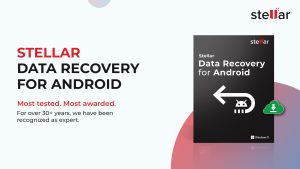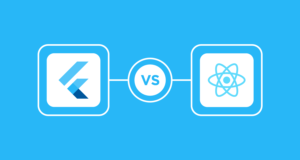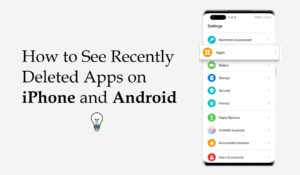Top Android Development Tools and Libraries for 2024

In the mobile first world, Android app developers need to keep themselves updated with the new tools and libraries. In this highly competitive app development industry, it is crucial to look at the most promising Android development tools and libraries that will define the future of mobile applications. Starting from the IDE, which is Android Studio, to the programming language, Kotlin, UI toolkit, and Jetpack Compose, the list of top android app development tools is vast. In this blog post, we have shortlisted some top tools that help you create the best Android app so that it can stay ahead of the competition.
Understanding Android Development Tools and Libraries
Android development tools and libraries can be compared to the set of components that are used to construct an application. These tools assist the developer in coding the app, reviewing it to ensure that no errors have been made, and to ensure that the app will run well on various Android devices. Libraries are existing codes that can be included in an application to perform a particular function instead of having to code it from scratch.
This is time and energy saving. Thus, in simple terms, these tools and libraries provide developers with all the necessary elements to develop great-looking, functional, and global apps. If you want to develop a mobile app, you should hire android app developers in the USA having expertise in all these tools.
Android Studio
Android Studio can be compared to a magic box for anyone who wishes to develop applications for Android. It is the official site for developing applications as it contains all the tools in one location. Think of a clean sheet of paper with all the materials required to paint a picture before you; that is what Android Studio does for app development. It allows you to write your app’s code, inform you that something does not look right, and allow you to run your app and see how it works.
Some of the components that assist in writing code, such as the feature that guesses what the developer is typing, and others that allow seeing the app in action without a physical device, make it as effortless as possible to build an app. Whether it is a bug to be resolved or a new feature to be added, Android Studio is around to help you get your work done.
Kotlin – The Preferred Programming Language
Kotlin is already widely used for developing Android applications since it was introduced a few years ago. Why? It is clean and uncluttered, and this makes it easier for developers to write code and with less chances of making errors. Google itself suggests the use of Kotlin for Android application development. Such backing from Google has made Kotlin very popular among developers.
Another great thing about Kotlin is that it integrates well with Java, another programming language used for creating Android apps. This means, if you have an application developed in Java, you can add new portions in Kotlin without any problem. Also, Kotlin reduces the probability of making common coding mistakes hence making your app more robust.
Another advantage of Kotlin is that it also simplifies the code. Its design assists the developers write less code than Java, yet they gain similar functionality. This not only reduces the amount of code, but also makes it more comprehensible and less problematic to modify.
Jetpack Compose – The Modern Native UI Toolkit
Jetpack Compose is the new way of creating UI in Android application development. Just think about designing the look of your app with less code and more liberty. That is what Jetpack Compose provides. It is a set of tools that developers can use to design native interfaces that are easier to develop. Instead of struggling to write a lot of code to make an application look good, there is a tool called Jetpack Compose to help one visualize their ideas.
This tool helps in developing interfaces that are responsive to the screen size to ensure that your app is good on any device. Also, it is compatible with Kotlin, and that is a great advantage since you get to apply the best programming practices and still have concise code. Thanks to Jetpack Compose, it is much more fun and easy to create beautiful and reactive applications.
Firebase – Mobile Development Platform by Google
Firebase is developed by Google and is used to design, debug and improve apps in one environment. Suppose you are constructing a house. Firebase would provide you with all the means to not only construct the walls and roof but also paint the walls with your favorite color, install security features and even test the strength of the structure after it has been constructed.
The cool thing is that with Firebase, you get to use features that enable users to log into the app, store data securely in the cloud, and send messages within the app. It is also useful for instance to know how your app is performing. This way you can find out how many people are using your app, where they got the app from, and which sections they prefer. But if something is wrong, for example, the app crashes, Firebase lets you know so that you can rectify the problem.
TensorFlow – On-Device Machine Learning Simplified
TensorFlow takes machine learning to your Android application right from your smartphone, without requiring a high-end computer or internet connection. Think about the ability of your app to identify objects on the picture or to transcribe the voice on the phone without connecting to the Internet. That is what TensorFlow Lite does; it brings the ability to learn and make decisions into the app you are using.
It is as if you are endowing your app with its own tiny brain that enables it to have vision and hearing, and interpret the world at large in a more sophisticated manner. This is especially cool because it works fast and does not drain the battery. Thus, if you are developing an app and would like it to perform some smart things on its own, TensorFlow Lite is the tool that can help.
Genymotion Android Emulator – For Faster App Testing
Genymotion Android Emulator is one of the best tools for testing Android apps as it simplifies the process. Just think about the possibility of testing your application on a great number of phones and tablets without purchasing all of them. This tool is so useful because it tells you how your app will perform under real-life scenarios. You can even simulate how your app behaves in different locations or how it uses the camera all this without having to leave the desk. This means that you can easily locate and correct these problems much quicker. Genymotion simplifies the whole process, and you’ll be able to get your app ready for the users in no time.
Conclusion
With these amazing tools and libraries, the future of Android application development is bright as we enter 2024. From the IDE of Android Studio to the language of Kotlin, and the design of Jetpack Compose, top Android app development company in the USA has everything it needs to create fantastic apps. Firebase and TensorFlow are great additions for adding more options, whereas Genymotion and Fastlane help with testing and releasing applications. These are the technologies that are essential for creating apps that are not only good, but great – apps that are fast, reliable, and beloved by users. Thus, adopting these tools, developers can create better apps faster and meet the speed of the IT industry.






